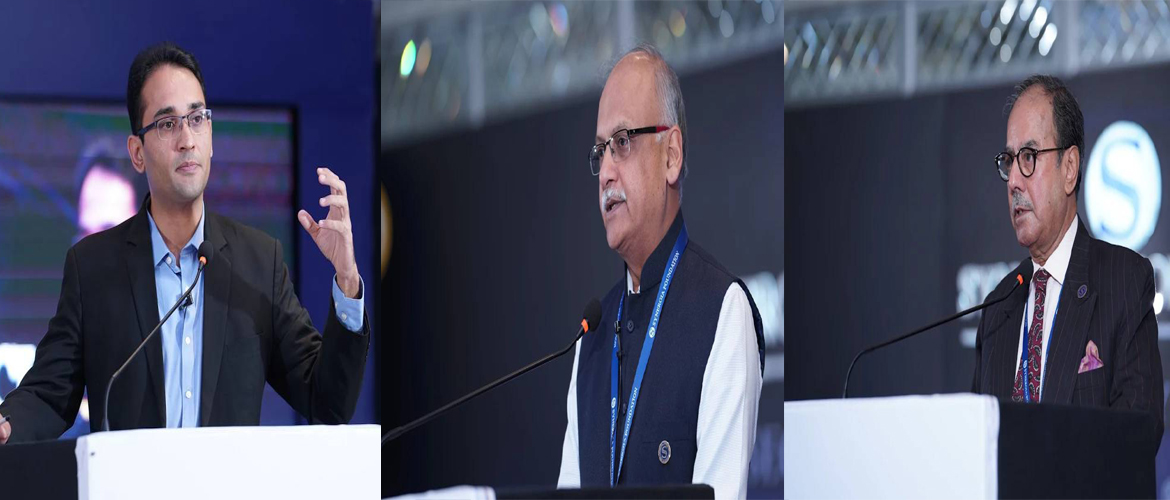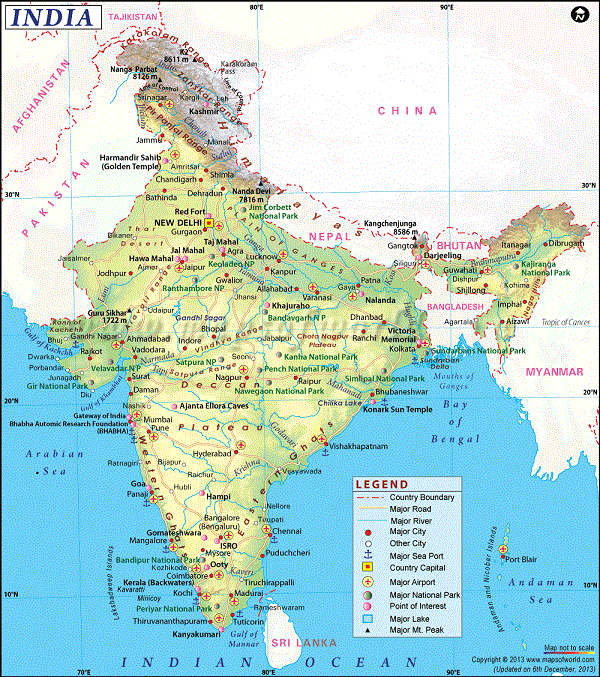Changing paradigms in internal security
November 23, 2017 | Expert Insights

Since the advent of independence, India has faced a multitude of security challenges to its nationhood – both internal and external.
A panel of experts at the Synergia Conclave 2017 – Security 360 discussed the changing paradigms in internal security with a focus on India. Panellists discussed the scenario of how the aspects of security in India evolved, how they have been changing in the past decade and what the future could hold?
Background
The geopolitics of India must be considered in the geographical context of the Indian subcontinent. It is a self-contained region that includes India, Pakistan, Bangladesh, depending how one defines it, Nepal and Bhutan. The subcontinent is called "self-contained" because it is a region that is isolated on all sides by difficult terrain or by ocean. In geopolitical terms it is, in effect, an island.
Since the advent of independence, India has faced a multitude of security challenges to its nationhood – both internal and external. This has also served as a threat to the nation’s emergence as a deservingly significant player in global geopolitics. Located in one of the most security and politically stressed regions in the world, India’s security challenges are formidable. It shares nearly 7,000 km of active international borders with seven nations. Many of the countries that India shares its borders with are also security threats. India has been in armed conflict with Pakistan and China over border issues over the years. The country has also faced the threat of terrorism both domestic and international.

Analysis
A panel of experts at the Synergia Conclave – Security 360 discussed the changing paradigms in internal security with a focus on India. HE Shyamal Dutta, Former Governor of Nagaland and Director of Intelligence Bureau, Lieutenant General S.L. Narasimhan, PVSM, AVSM, VSM, Member of National Security Advisory Board, Govt. of India, and T.M. Veeraraghav, Senior Journalist, The Hindu, CNN-IBN & NDTV - discussed the scenario of how the aspects of security in India evolved, how they have been changing in the past decade and what the future could hold.
HE Shyamal Datta elaborated on how the constructs of the existing security framework evolved in India. He described the distinctions between the security framework and the law & order framework, and although these cannot be seen parallel, it is essential that they have to be meshed together and have a coordinated approach if we are to evolve to the next level of security.
Lt.Gen. Narasimhan, as a practitioner of handling insurgencies shared his views and comments based on that perspective. He reminded the audience that fault lines existed in internal, external, common spaces. There is no panacea for insurgency, and the solution ultimately has to come from the political side, he pointed out. What was essential though, is that the nexus between insurgency, crime and politics be broken. We need to go high tech and simultaneously strengthen low tech, he said. And in order to change the way internal security is threatened by insurgency, we need to ensure that the factors that initiate these insurgents and their causes, should be eliminated. This means individual security should be more focused upon, and the basic requirements of the lower start should be met. "Most importantly, increasing the number of armed forces in a security sensitive area inside the country is not the solution. This would not improve the efficiency; we need to do the opposite, he said."
Veeraraghav brought in the layman’s perspective in expressing his thought sand concerns – he said the fundamental change one has been grappling with, is the change that the internet has brought – the challenges in security that has erupted from the advent of social media. Also, security has been seen as state subject, with the public getting information on a need-to-know basis. Now the buffer between the people and the government is breaking down. Since misinformation also spread quickly through social media, providing accurate information at the right time will definitely impact how security is perceived and also experienced in our country. He opined that we are unable to predict how thoughts and notions of a nation are going through a change, and it is impossible to predict where we would be a decade from now.
Assessment
Our assessment is that the basic tenant of addressing paradigm shifts in internal security is to focus both on the people, the society and the rule of law. India faces multifaceted internal security challenges which inlcudes left wing extremism, on going proxy war in Jammu and Kashmir, insurgenices in some states in the North East and organized crime. Each challenge has its own genesis and we need to continously adapt and improvise to mitigate such threats. We believe that its extremely important that Indias communal, caste, linguistic, ethinic fault lines, economic deprravities & disparities and politicals differences must not be allowed to be exploited by forces that are inimical to the country.








Comments